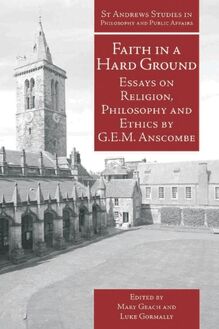-
 Univers
Univers
-
 Ebooks
Ebooks
-
 Livres audio
Livres audio
-
 Presse
Presse
-
 Podcasts
Podcasts
-
 BD
BD
-
 Documents
Documents
-
- Cours
- Révisions
- Ressources pédagogiques
- Sciences de l’éducation
- Manuels scolaires
- Langues
- Travaux de classe
- Annales de BEP
- Etudes supérieures
- Maternelle et primaire
- Fiches de lecture
- Orientation scolaire
- Méthodologie
- Corrigés de devoir
- Annales d’examens et concours
- Annales du bac
- Annales du brevet
- Rapports de stage
La lecture à portée de main
Vous pourrez modifier la taille du texte de cet ouvrage
Découvre YouScribe en t'inscrivant gratuitement
Je m'inscrisDécouvre YouScribe en t'inscrivant gratuitement
Je m'inscrisEn savoir plus
Vous pourrez modifier la taille du texte de cet ouvrage
En savoir plus

Description
Sujets
Informations
| Publié par | Andrews UK |
| Date de parution | 09 décembre 2011 |
| Nombre de lectures | 0 |
| EAN13 | 9781845402754 |
| Langue | English |
Informations légales : prix de location à la page 0,0674€. Cette information est donnée uniquement à titre indicatif conformément à la législation en vigueur.
Extrait
Title Page
LIFE, LIBERTY, AND THE PURSUIT OF UTILITY
Happiness in Philosophical and Economic Thought
Anthony Kenny and Charles Kenny
Publisher Information
Copyright © Anthony Kenny & Charles Kenny, 2006
The moral rights of the authors have been asserted.
No part of any contribution may be reproduced in any form without permission, except for the quotation of brief passages in criticism and discussion.
Originally published in the UK by Imprint Academic
PO Box 200, Exeter EX5 5YX, UK
Originally published in the USA by Imprint Academic
Philosophy Documentation Center
PO Box 7147, Charlottesville, VA 22906-7147, USA
Digital version converted and published in 2011 by
Andrews UK Limited
www.andrewsuk.com
Cover Photograph:
St Salvator’s Quadrangle, St Andrews by Peter Adamson from the University of St Andrews collection
Preface
‘From the dawn of philosophy’ wrote John Stuart Mill ‘the question concerning the summum bonum , or, what is the same thing, concerning the foundation of morality, has been accounted the main problem in speculative thought and has occupied the most gifted intellects.’ Happiness, or the supreme good, was indeed a major concern of philosophical inquiry throughout many centuries. In the twentieth century, however, the most gifted intellects in philosophy rather lost interest in the topic. In the heyday of analytic philosophy the word ‘happiness’ did not even occur in the index of the most influential texts of ethical theory. Only in the field of Aristotelian scholarship was the study of the topic kept alive.
In the latter part of the century, the ball that had been dropped by philosophers was taken up by economists. From 1974 Richard Easterlin published a series of empirical studies which entitled him to be called the father of the field of the economics of subjective happiness, a field that has been blooming over the last few years, as later chapters of this book will attest. Easterlin was also one of the first to systematically question the link hitherto assumed by economists between income and welfare.
Amartya Sen combines the skills of an economist with the insight of a philosopher. He has fused a broadly Aristotelian approach with his immense knowledge of development to build a theory based on the concepts of capabilities and functionings as keys to what is valuable in or important about the development process. This thinking, and writing by those that Sen has influenced, informs much of the work which will be cited in later chapters. He and his colleagues early pointed out that the success of countries and regions such as Kerala, China and Sri Lanka in improving health outcomes was largely to do with measures of public support rather than economic growth. More broadly, Sen’s general approach to development has been explicitly based on the idea that income is an insufficient measure and a poor proxy for levels of the quality of life.
In this book we attempt, like Sen, to combine philosophy and economics in the consideration of happiness. We adopt, however, a different approach to the analysis of well-being. Consideration of the debates over centuries on the nature of happiness leads us to believe that overall human well-being has three main constituents, which we call welfare, contentment, and dignity.
We structure the book around this basic scheme. In the first section we offer a historical introduction to the topic of happiness. The next three sections treat in turn of welfare, dignity, and contentment. We take the elements in this order because it corresponds to the order in which they are implied in the commitment of the US Declaration of Independence to ‘life, liberty, and the pursuit of happiness’. The final section draws some moral and political conclusions from our analysis of well-being.
Each section contains two chapters. The first, odd-numbered, chapters deal with conceptual issues and were written by Anthony Kenny. The second, even-numbered chapters treat of empirical matters and were written by Charles Kenny. While the concepts are very much distinct, it is worth noting that welfare, dignity and contentment frequently reinforce one another. We will see that there is evidence that income equality, gender equality and measures of civil rights may all be causally related to welfare outcomes including infant mortality and life expectancy. A basic level of welfare is itself clearly critical to the ability to function in society. Subjective well-being appears to be as much a cause as a result of good health and a greater level of civil rights appears to be related to higher levels of contentment.
While welfare, dignity and contentment are often closely linked, one of the major themes of this book is that income is a poor proxy for any of these. Beyond some minimal level, increasing income appears at best weakly correlated with improvements of welfare, dignity or contentment within or across countries over time. Institutions which foster and preserve life and liberty do appear central, but these institutions can exist in poorer and richer countries, and their development over time is largely (causally) independent of the speed of economic growth.
We should at the outset address a few issues of definition: ‘subjective happiness’ and ‘subjective well-being’ are both used to describe answers to polls answering questions akin to ‘taking your life as a whole, would you consider yourself very, happy, somewhat happy or not happy at all.’ We take answers to such polls to be a fairly accurate proxy for what we term contentment. Gross National Product (GNP) and Gross Domestic Product (GDP) are distinct but very highly correlated measures of national output. Both are commonly used as measures of national income - so that GNP per capita or GDP per capita are taken in the text to represent good proxy measure for average individual incomes in a country. Unless otherwise specified, dollar figures presented in the text are measured in terms of the year 2000 purchasing power of a US dollar. In other words, the figures have been adjusted for inflation over time and the differing costs of goods and services in different countries. Finally, ‘average,’ unless otherwise indicated, is the mean value of an indicator.
We are greatly indebted to John Haldane, who encouraged us to write this book, and to Nancy Kenny and Pamela Street Kenny, for comments and editorial advice. We are particularly grateful to the Rockefeller Foundation for supporting a three week residency at the Villa Serbelloni in Bellagio, Italy, where the bulk of the manuscript was written in surroundings conducive to every aspect of well-being.
Anthony Kenny, Oxford
Charles Kenny, Washington DC
July 2006
Part One: Historical Introduction
Chapter 1: The Philosophy of Happiness
Aristotle on Happiness
Since the earliest days of Western thought philosophers have concerned themselves with the nature of happiness. One of the earliest to ask the question ‘what is happiness?’ was Aristotle, who, in a manner typical of philosophers, before providing an answer insisted on making a distinction between two different questions. His first question was what was meant by the word ‘happiness’ - or rather, its ancient Greek equivalent eudaimonia. His second question was where happiness was to be found, that is to say, what is it that makes us truly happy. Reasonably enough he thought that it was futile to try to answer the second question without having given thought to the first.
The definition that he offers is that happiness is the supreme good that supplies the purpose, and measures the value, of all human activity and striving. ‘It is for the sake of happiness’ he wrote ‘that we all do everything else we do’ (Aristotle, 2002, 1102a3). This seems a very sweeping statement: surely it is implausible to suggest that every human action is explicitly aimed at some single goal. Indeed, the suggestion is inconsistent with things that Aristotle says elsewhere. He does not seem to wish to rule out the possibility of impulsive actions done for fun without any reference to one’s long-term happiness. What he means rather is that if you plan your life - and any sensible person, he thinks, ought to have a plan of life, at least in the form of a set of priorities - your top priority, your overarching goal, will show what you take to be a worthwhile life, and thus what you mean by ‘happiness’. Indeed, in the light of what Aristotle says, we might offer ‘worthwhile life’ as the most appropriate translation of his word ‘eudaimonia’. But we will continue to use the traditional translation ‘happiness’, where necessary qualifying it as ‘Aristotelian happiness’.
Aristotle was well aware that human beings may have the most varied and bizarre notions of what makes them happy. But whatever they present as their ultimate ambition, it must, he thinks, as a matter of logic, pass certain tests if it is genuinely to count as happiness. For there are two features, he maintains, that are built into the very notion of happiness.
One is that it must be an end rather than a means. We may do other things for the sake of happiness, but we cannot be happy as a means to some other goal. You may find, perhaps, that being cheerful helps you to make money, and for that reason you resolutely adopt a cheerful frame of mind. But that just shows, Aristotle would say, that cheerfulness is something different from happiness, and if your ultimate aim is to make money for its own sake, what that indicates is that you believe (wrongly) that happiness is to be found in riches. Happiness, he insists, is always sought for its own sake and never for the sake of anything else.
The second built-in feature of happiness is that is must be self-sufficient: that is, it must be so
-
 Univers
Univers
-
 Ebooks
Ebooks
-
 Livres audio
Livres audio
-
 Presse
Presse
-
 Podcasts
Podcasts
-
 BD
BD
-
 Documents
Documents
-
Jeunesse
-
Littérature
-
Ressources professionnelles
-
Santé et bien-être
-
Savoirs
-
Education
-
Loisirs et hobbies
-
Art, musique et cinéma
-
Actualité et débat de société
-
Jeunesse
-
Littérature
-
Ressources professionnelles
-
Santé et bien-être
-
Savoirs
-
Education
-
Loisirs et hobbies
-
Art, musique et cinéma
-
Actualité et débat de société
-
Actualités
-
Lifestyle
-
Presse jeunesse
-
Presse professionnelle
-
Pratique
-
Presse sportive
-
Presse internationale
-
Culture & Médias
-
Action et Aventures
-
Science-fiction et Fantasy
-
Société
-
Jeunesse
-
Littérature
-
Ressources professionnelles
-
Santé et bien-être
-
Savoirs
-
Education
-
Loisirs et hobbies
-
Art, musique et cinéma
-
Actualité et débat de société
- Cours
- Révisions
- Ressources pédagogiques
- Sciences de l’éducation
- Manuels scolaires
- Langues
- Travaux de classe
- Annales de BEP
- Etudes supérieures
- Maternelle et primaire
- Fiches de lecture
- Orientation scolaire
- Méthodologie
- Corrigés de devoir
- Annales d’examens et concours
- Annales du bac
- Annales du brevet
- Rapports de stage



















